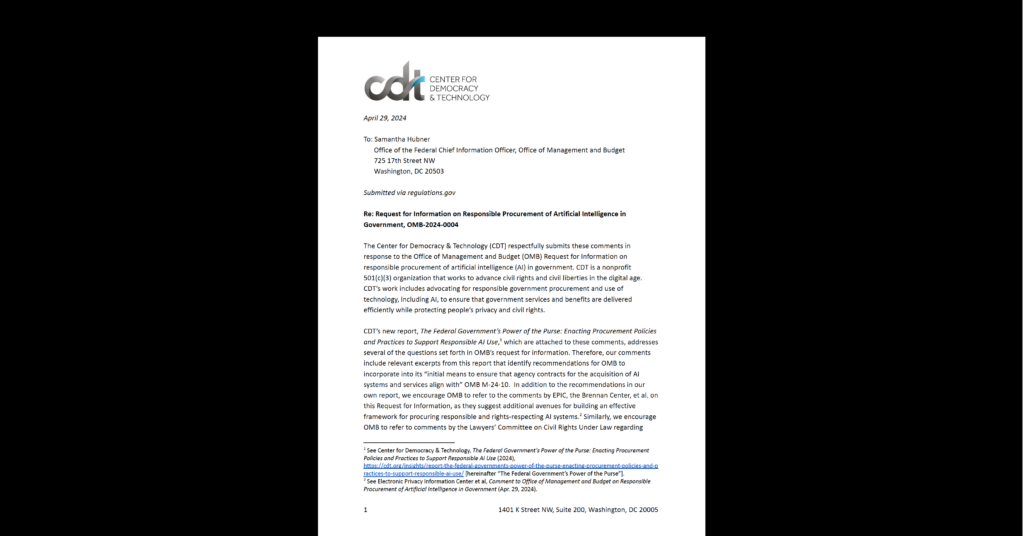Cybersecurity & Standards, Open Internet
CDT Chimes In On Canada’s Differential Pricing Review
Written by Clinton Oxford, Legal Intern
As US net neutrality laws gain steadier footing following the DC Circuit’s recent affirmation of the FCC’s Open Internet Order, Canadian regulatory officials are poised to review their own open internet rules at a series of public hearings this fall. As part of this review, CDT filed comments on differential pricing practices and offered our recent zero rating whitepaper as a framework for understanding the potential benefits and harms of differential pricing.
Canada’s current net neutrality regime prohibits most instances of blocking and throttling lawful traffic and was passed in 2009 following complaints against the countries’ largest ISPs. In recent years, the Canadian Radio-television and Telecommunications Commission (CRTC) has also adopted regulatory measures addressing consumer transparency and competition among wireless carriers.
Differential pricing practices among both fixed and wireless ISPs are at the forefront of CRTC’s review. Globally, differential pricing on the basis of content has garnered increased attention as both a business practice and matter of regulatory interest. Since 2015, Canadian regulatory officials have grappled with tensions between the open internet and differential pricing as national ISPs began offering zero-rated plans to both distinguish their services and to attract larger customer bases.
CRTC’s most recent review of differential pricing practices was prompted by complaints regarding Videotron’s Unlimited Music service. The Unlimited Music plan exempts certain music streaming such as Spotify and Google Play from a user’s data caps. While the Commission banned vertically-integrated providers from zero-rating their own video streaming services in 2015, the Commission must now consider how to treat the practice of exempting certain non-affiliated internet traffic from usage-based pricing.
As noted in our comments, we believe CDT’s framework for assessing the benefits and harms of zero rating can aid regulators in determining whether specific pricing arrangements convey benefits while minimizing inconsistency with or harm to the open internet. We note that not all zero-rated practices pose a potential threat to the open internet, but, rather, might provide benefits that outweigh cited harms.


